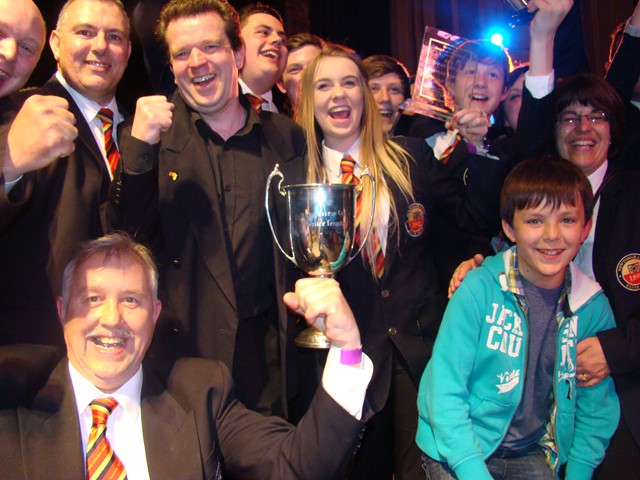
A new high for Nitten...
With all the recent uplifting banding news coming out of Scotland seemingly centred on the admirable development of its grass roots structure, it’s easy to forget that there has also been a quiet renaissance in the fortunes for some of its senior bands too.
None more so than Newtongrange, who have experienced both the highs as well as the lows of contesting existence over the last few years.
Iconic
Little wonder the current batch of players enjoyed themselves so much after they claimed the Senior Trophy on Eric Ball’s iconic ‘Journey into Freedom’, to add to the First Section Scottish Championship title they won earlier in the year.
From representing their nation at the European Championships in 2006, to being unable to take part in the Scottish Championship less than 12 months later – ‘Nitten’, as they are known colloquially north of the border, has experienced one heck of a ‘Journey’ of their own of late.
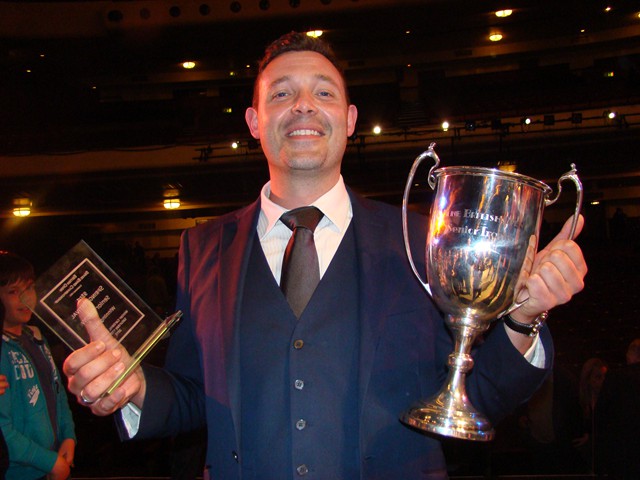
The Newtongrange MD celebrates with the trophy
Impressed
Directed with controlled brio by their newly appointed MD, Lee Skipsey, it was a victory borne of intelligence, confidence and musicality; virtues that were certainly needed in a contest that impressed adjudicators Simone Rebello and Lynda Nicholson sat in the box at the back of the Disneyesque surroundings of the Spanish Hall.
Eric Ball’s 1967 National test piece may have lost a few of its sharpest technical teeth over the last 46 years, but it has still retained the ability to sink its gnashers into the backside of any conductor who tries to take unwarranted liberties with its sublime musicality.
Self inflicted
The bands that were eventually found at the bottom end of the results table tended to be victims of self inflicted wounds – mainly through high minor error counts, poor ensemble, balance and dynamics, inexperience and nerves.
Thankfully, not one MD really tried to kid either the audience (and there was a good crowd in all day) or the judges, that they alone had found the Rosetta Stone secret to unlocking a hitherto unique reading of what really is a pretty straightforward and very familiar score.
No turn
Certainly not Lee Skipsey with Newtongrange, who shaped a coherent interpretation that kept both dynamics and tempos in check, allowed warmth and balance to permeate the ensemble and was delivered with assured technical confidence.
‘Nitten’ has stolen a real march on rivals by signing up one of the most exciting and talented young conductors in banding as their visiting professional MD.
There may not have been the trademark 180 degree turn to face the audience on the final chord, but from the feroce opening to the esaltato finish, the City of Bradford conductor directed with such an inherent understanding of the score that he could have conducted the final few bars with his eyes closed instead.
On this classy form the combination will be one of the real favourites to claim the First Section National title in Cheltenham in September.
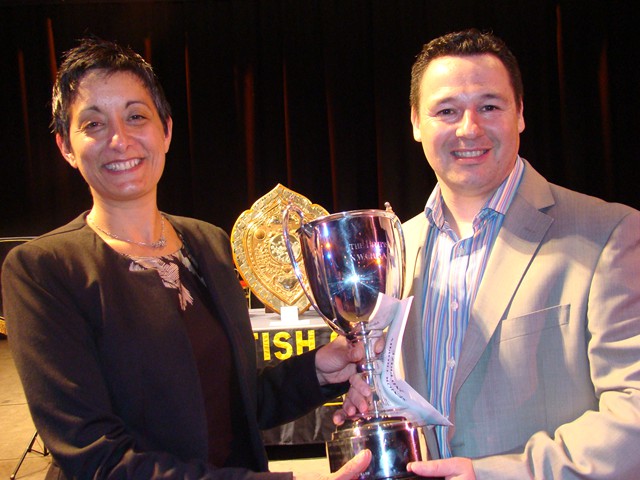
Impressive qualifiers Laganvale (Metal Technology)
Qualifiers
Joining them in the Senior Cup in 2014 though will be the impressive trio of Laganvale (Metal Technology), Camborne and East London Brass.
The Northern Irish band revelled in the music under the baton of Trevor Carter, with the wonderful Dessie Neill showing just why he is so well respected as a top class principal cornet on both sides of the Irish Sea, with his beautifully shaped delivery of the central love theme to claim the ‘Best Instrumentalist’ award.
It was expressive cornet playing of rare quality that formed the core of an equally impressive overall performance from a band that is a welcome (if all too rare) visitor to these shores.
Understanding
Meanwhile, John Berryman’s clearly defined musical understanding of Eric Ball’s writing was certainly to the fore with Camborne’s lovingly shaped performance in coming third, with his ability to build the layers and tension in the lead into the final esaltato section, a mini masterclass of musicality.
There was just as much to enjoy with East London Brass, who rounded off the contest with tastefully textured account under Jayne Murrill that provided further evidence of the growing maturity as a top flight force.
It really was a model of good ensemble husbandry from start to finish.
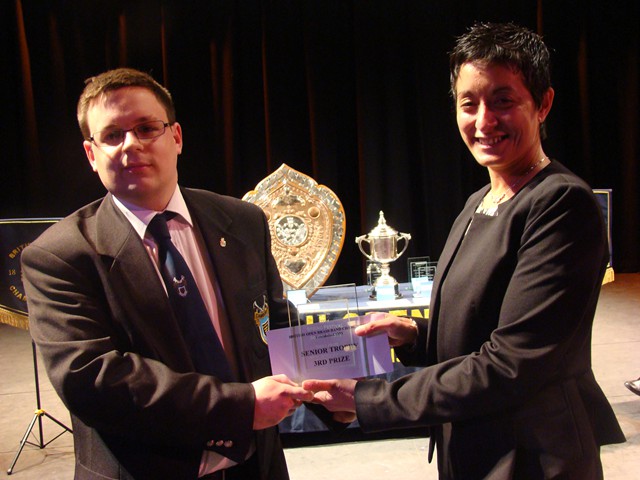
Understanding form in third for Camborne
Not quite
The confidence shown by both Drighlington and Sovereign Brass in filling the remaining top six places was obvious.
Bold and purposeful, their slightly more robust ensemble sounds may not have been quite what the judges were looking for on the day, although their technical proficiency was as good as any of the qualifiers.
Lack of delicacy
With the Spanish Hall not the most forgiving place to try and show lip bursting muscle, the bands that tried to make a over forceful impact at the opening got caught out somewhat.
Thelack of delicacy in the allegro scherzando waltz in particular (with its opening three bars all on first valve for solo cornets) saw more errant chips than could be found on the pavement outside the nearest fish bar on the Golden Mile.
Still, it must have been difficult for the judges to separate out the solid midfield finishers, with the more refined understanding of the score, especially from the likes of Archie Hutchison (Dalmellington) and Russell Gray (Oldham Lees) balanced against the youthful gusto of Darren Hawkin (St Dennis) and John Ward (Jackfield). The margins between the 7th and 14th were small.
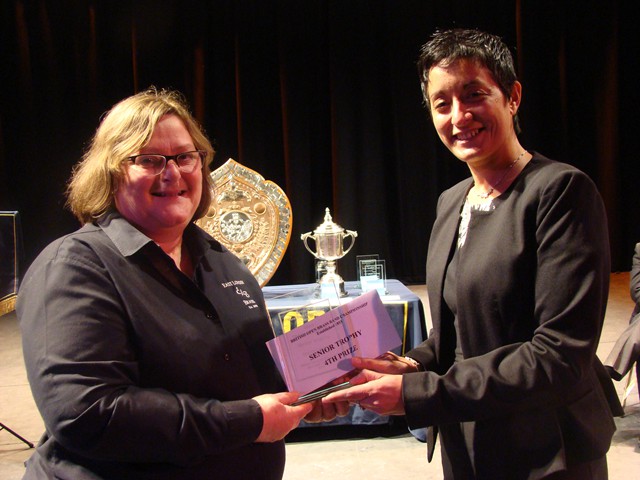
A textured qualification finish for East London Brass
Mention
Where some bands are enjoying the highs of contesting life, others are invariably enduring a few lows, so there should be a special mention to Hatfield Colliery (who were made up of players signed from three bands to be able to compete).
Stan Lippeatt did a wonderful job on the day; stepping in to help his friend Graham O’Connor who is recovering from a spell of ill health.
His obvious enthusiasm, understanding and encouragement ensured the band gave a very creditable performance to end 16th.
You were left hoping that the band, Stan and Graham will be making their own journey back here for many more years to come.
John James













